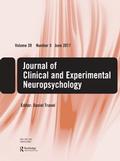News / Document Search Results
4/26/2017
Better Hearing and Speech Month Coffee Break Webinars
May is Better Hearing and Speech Month! In celebration, OSEP's Early Childhood Assistive Technology Model Demonstration grantees and Center on Technology and Disability is partnering with the Office of Head Start's Early Childhood Hearing Outreach (ECHO) Initiative to join the American Speech-Language-Hearing Association (ASHA) in celebrating this year's theme "Communication: The Key to Connection." Throughout the month of May, ASHA partners with national and local stakeholders to engage in a multifaceted public education campaign to raise awareness about the critical need to intervene early when young children are identified with communication disorders. The Coffee Break Webinars will focus on raising awareness about the use of assistive technology and the importance of frequent hearing screenings. Please join the Coffee Break webinar series to learn more about assistive technology and hearing screening. There is no pre-registration to join the webinars.
4/25/2017
New Report: Effective Solutions to South Carolina's Juvenile Justice Crisis
The report provides a blueprint to build a model juvenile justice system in SC--one that reduces repeat criminal activity by rehabilitating child offenders in smaller facilities, keeping children and juvenile justice staff safe, providing mental health services to children in the juvenile justice system, and more efficiently spending tax dollars.
4/25/2017
Tuesdays with Liz: Medicaid Matters and the DREAM Fund
In this week's edition of Tuesdays with Liz: Disability Policy for All Liz interviews Maggie Winston, who is a LEND trainee from Alaska and a DREAM fund recipient about her experience in DC when she came for Disability Policy Seminar.

4/24/2017
Accessibility for all Aggies (TX UCEDD)
Students weigh in on lack of accessibility
For the majority of college students getting to their classes is a feasible everyday routine. However, some members of the Aggie family who are physically disabled face a larger challenge. Jordan Cox, environmental design and Spanish senior who has a disability, said after her disability progressed freshman year she began receiving services but did not necessarily feel comfortable using her wheelchair on campus.

4/24/2017
RTC:Rural Researchers Featured in The Conversation Article Highlighting Rural/Urban Divide (MT UCEDD/LEND)
The Conversation featured the work of RTC:Rural's geography project in the article "Six charts that illustrate the divide between rural and urban America." Lillie Greiman, M.A., and Andrew Myers, M.A., RTC:Rural Research Associates, with Christiane von Reichert, Ph.D., Professor of Geography at the University of Montana, contributed to an article about the rural/urban divide that was recently published on The Conversation. The article was a collaboration among the UM researchers and sociologists, economists, and historians at universities around the country
4/19/2017
NCD Study on Sexual Assault with Disabilities on College Campuses
The National Council on Disability is in the process of collecting data for a report on sexual assault of students with disabilities on college campuses. The report will provide a national overview of college services and supports regarding sexual assault on campus - from prevention to reporting, to post assault support, and how survivors with disabilities fare within those structures. The findings in this report primarily serve to assist policymakers with insight needed to make informed policy that improves the ability of colleges to provide services, supports, and improved outcomes for students with disabilities who have experienced sexual assault on campus. Thank you for participating in this important work.
4/18/2017
Tuesdays with Liz: Why Medicaid is Important
In this week's edition of Tuesdays with Liz: Disability Policy for All Liz interviews Evan Nodvin about why Medicaid is important in his life. In case you missed it last week, Liz interviewed Timotheus Gordon, LEND fellow in Illinois, about the development of an online study that he developed about people with Autism and who are also people with color.

4/17/2017
'Just Kids' Photography-based Exhibit Features Children with Disabilities (GA UCEDD)
Georgia Libraries for Accessible Statewide Services (GLASS) exhibits its first photography-based art exhibition - "Just Kids", a documentary and portraiture style look into the lives of families and their loved ones who have an intellectual or developmental disability. The "Just Kids" exhibit, created by photographer Ryan Johnson, who served as community support specialist at the Center for Leadership in Disability (CLD), includes 18 portraits, five of which are of families that are members of the Chattahoochee Valley Down Syndrome Association.

4/17/2017
AgrAbility Receives USDA Grant to Educate Vets, New Farmers (TX UCEDD)
By Rachel Knight, The Battalion
Texas AgrAbility, a part of the Texas A&M AgriLife Extension, received a grant from the USDA National Institute of Food and Agriculture to help educate 725 military veterans and first-time farmers about how to start farming.

4/17/2017
Johnson and Thurlow (MN UCEDD) Among Authors of New NLTS2012 Report
Director David R. Johnson and Martha Thurlow of the Institute on Community Integration (MN UCEDD) are among the authors of the newly-released report of findings from the National Longitudinal Transition Study 2012 (NLTS 2012). The NLTS 2012, which is part of the congressionally-mandated National Assessment of the Individuals with Disabilities Education Improvement Act of 2004, is based at Mathematica Policy Research, and the research team for the study consisted of key staff from Mathematica and from the Institute on Community Integration.

4/16/2017
#AUCD4ALL Sponsors - Thank you!
Thank you for a fantastic evening! We are deeply appreciative of the support of our sponsors at the March 22nd 2017 AUCD for All Gala. Your support and leadership to expand employment opportunities will go a long way to ensuring change.

4/14/2017
When Dinosaurs Ruled the Earth
A short film about autism, robots and dinosaurs
The story is about C.J., an 8-year-old boy with autism who lives in an imaginary world of dinosaurs. He spends every lunch and recess alone because he has no friends and so plays with dinosaur games or puzzles. With the aid of a 2-foot tall robot named KIWI, his life is going to change.

4/12/2017
AIR-P Transitions to Learning Network model and Engages in Multi-Site Research Projects
The Autism Intervention Research Network on Physical Health (AIR-P), led by Karen Kuhlthau, PhD, conducts research on evidence-based interventions to improve the physical health and well-being of children and adolescents with autism spectrum disorders (ASD) and other developmental disabilities, with an emphasis on underserved communities. Two key goals of the AIR-P network are 1) to conduct multi-site research on evidence-based interventions that improve physical health of children and adolescents with ASD and developmental disorders, especially underserved populations and 2) to transform AIR-P into a multi-site Learning Network (LN) which will provide a collaborative laboratory for developing and testing evidence-based interventions and accelerating the adoption of effective interventions and system management approaches into practice.

4/12/2017
Beta-adrenergic antagonism modulates functional connectivity in the default mode network of individuals with and without autism spectrum disorder
R-40 Grant Research Outcomes Summary by David Beversdorf, MD
Current research is beginning to suggest that propranolol, a drug originally developed to control blood pressure and heart rate by blocking beta-adrenergic receptors, which is also used for performance anxiety, might be helpful in autism spectrum disorders (ASD). However, the mechanism by which this occurs is not entirely known. Our team examined how propranolol affected interactions between brain regions, or functional connectivity (FC), with functional magnetic resonance imaging (fMRI). We examined this in both those with ASD and in those without ASD.

4/12/2017
DBPNet Publishes Research on Diagnostic Procedures and Patient Report Measure
The Developmental-Behavioral Pediatrics Research Network (DBPNet) is a 14 site Network whose mission is �to conduct collaborative, interdisciplinary research in developmental and behavioral pediatrics that advances clinical practice, supports research training, and optimizes the health and functional status of children with developmental and behavioral concerns and disorders, including children with autism spectrum disorders (ASD) and other developmental disabilities�. The Network had a successful competitive renewal in the past year and is now funded from 9/16 through 8/21.

4/12/2017
Effects of acute beta-adrenergic antagonism on verbal problem solving in autism spectrum disorder and exploration of treatment response markers
R-40 Grant Research Outcomes Summary by David Beversdorf, MD
Current research is beginning to suggest that propranolol, a drug originally developed to control blood pressure and heart rate by blocking beta-adrenergic receptors, which is also used for performance anxiety, might be helpful in autism spectrum disorders (ASD). However, in order to move forward to clinical trials, it is important to first establish what measures are most likely to demonstrate a response to the drug. Therefore, we determined whether single doses of propranolol could affect verbal problem solving in ASD. Twenty participants received either propranolol or placebo in a within-subject crossover study performed in a double-blinded, counterbalanced manner. Verbal problem solving was assessed via an anagram task. Participants solved anagrams more quickly with propranolol, and the response to drug was was related to baseline autonomic activity and baseline anxiety measures. This provides evidence that verbal problem solving measures may be worth including in clinical trials for highly verbal ASD patients, and suggests markers that can be tracked in these trials to learn who is most responsive to the drug for future individualization of treatment.







